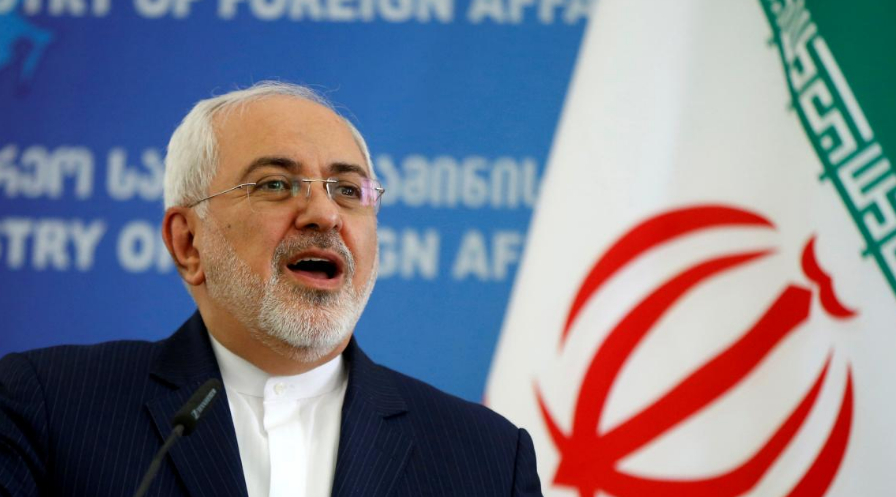
(Photo: CGTN)
US President Donald Trump and his allies in the Middle East have become isolated by their hostile policies toward Tehran, Iranian Foreign Minister Mohammad Javad Zarif said on Monday, state TV reported.
“Today, Trump, (Saudi Crown Prince Mohammad) Bin Salman and (Israeli Prime Minister Benjamin) Netanyahu have become the symbol of mistrust in the world,” Zarif was quoted as saying.
“Their oppressive policies and violent measures have made them isolated... The world has distanced itself from their hostile policies against Iran.”
A first round of US sanctions against Iran, lifted under the 2015 international deal over its nuclear program, are due to be reinstated on Tuesday.
They will cover Iran’s purchases of dollars, its trade in gold and precious metals and its automotive sector.
Under the deal between Tehran and world powers, most international sanctions imposed on Iran were lifted in 2016 in return for Tehran curbing its nuclear program.
EU stands with Tehran
With the United States set to reimpose sanctions against Iran from Monday, the European Union (EU) and three of its heavyweight members, Britain, France and Germany, said they would maintain economic ties with Tehran.
EU Foreign Policy chief Federica Mogherini, who is currently on an official trip to Asia, issued a joint statement with the foreign ministers of Britain, France and Germany, saying they "are determined to protect European economic operators engaged in legitimate business with Iran."
Stating that the Iranian nuclear agreement, also known as the Joint Comprehensive Plan of Action (JCPOA), is working and delivering on its goal, they stressed that the deal "is a key element of the global nuclear non-proliferation architecture, crucial for the security of Europe, the region and the entire world."
"This is why the European Union's updated Blocking Statute enters into force on August 7 to protect EU companies doing legitimate business with Iran from the impact of US extra-territorial sanctions," the officials said.
They said the remaining parties to the JCPOA will maintain effective financial channels with Iran, and continue to buy Iran's oil and gas.
US' withdrawal in May
Saying the deal had failed to address Iran’s ballistic missile program, its nuclear activities beyond 2025 and its role in regional wars, Trump withdrew from it in May in a move that Israel – which Iran refuses to recognize – and Saudi Arabia welcomed.
Israel supported the imminent resumption of US sanctions.
They “will compel the Iranians to decide between meeting the demands of the United States ... or risking the regime’s collapse and fall. The first option is good, the second excellent,” Israeli Intelligence Minister Israel Katz said on Twitter.
Shiite Iran has also been at loggerheads for decades with Sunni Muslim Saudi Arabia, fighting a long-running proxy war in the Middle East and beyond that has influenced conflicts in Iraq, Syria, Lebanon and Yemen.
“These three countries want to create psychological tension against Iran ... We will overcome this period of hardship,” Zarif said.
Despite efforts by Russia, China and Europe to salvage the deal, the Trump administration is pushing countries to cut all imports of Iranian oil from November, when the United States reimposes sanctions on Iran’s oil and shipping industries.
Fears of sanctions and economic hardship have led to sporadic protests in several cities in Iran in the past days, with ordinary Iranians chanting slogans against Iranian leaders.


